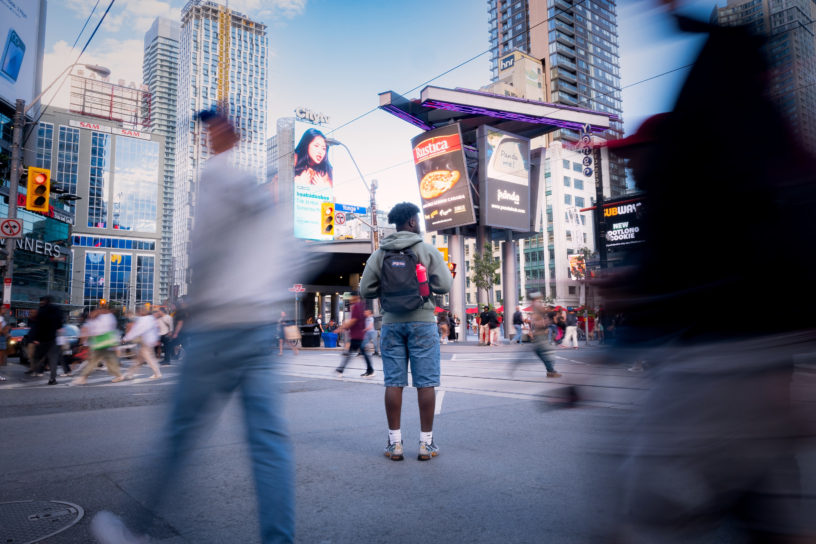By Jerry Zhang
Toronto Metropolitan University (TMU) is primarily located in the Downtown Yonge East neighbourhood. According to the Toronto Police Service’s Major Crime Indicators (MCI) database—which tracks crime reported in each neighbourhood—this area experiences higher crime rates compared to other parts of the city. Downtown Yonge East recorded 641 reported crimes this year, making it the second highest among Toronto’s neighbourhoods.
Given its location, campus security plays a vital role in ensuring the safety of the university community and managing the unique challenges that come with its dynamic urban locale.
Denise Campbell, executive director of Community Safety and Security, spoke on behalf of the TMU Community Safety and Security to The Eyeopener about the key resources the department offers on campus.
“The university has a broad set of safety protocols in place to support the safety of our TMU campus community,” she wrote in an emailed response. “Deliver 24/7 coverage of the campus, respond to emergencies, offer emergency medical assistance, provide WalkSafe escorts, perform safety patrols on foot and by bike.”
In the statement, Campbell encouraged all TMU community members to review a list of five resources to support safety on campus. Published on TMU’s Community Safety and Security page in August 2023, some of these steps include downloading the TMU Safe App, utilizing the university’s Walk Safe Program and ensuring students always have their OneCard on them.
The Walk Safe Program is available to all community members through their listed phone number and email. This program offers uniformed security escorts across campus and to nearby subway stations and parking lots off campus.
Second-year business management student Niyati Jain felt unsafe walking home after an event near Victoria Street last year and called the Walk Safe Program.
“Within the next five minutes, [someone] was there and helped me out,” she said.
Another way to stay safe on campus is by setting up a personal safety planning session. According to the description, these sessions provide “tools and resources” that are accustomed to individual experiences on campus so everyone at TMU can “make informed decisions” about their safety.
There are also various workshops offered by TMU that are “aimed at empowering [students] to take action and develop skills to more confidently respond to potentially concerning and aggressive behaviour.” Some of these workshops include self-defence training, de-escalating potentially violent situations and one called “Get out. Hide. Fight.” about dealing with active attacks on campus. Students can book a personal session by reaching out to the Community Safety and Security email.
The TMU Safe App is another resource offered to students and other TMU community members. According to an emailed statement from the university, “This app is the university’s tool for mass notification in the event of an urgent situation that poses an immediate safety or security risk to the community.”
The statement also emphasized using student OneCards to limit public access to campus buildings. “The TMU Campus is OneCard access only and all exterior campus building doors are locked and require a OneCard to gain access,” Campbell wrote.
She further advised community members to refrain from holding doors open for others and be aware of who’s behind them when accessing campus buildings.
“Since the campus is OneCard access only, community members are encouraged to be mindful of individuals who may follow behind them when entering building lobbies and are asked to not hold open doors for other individuals,” the response noted.
Last-year, Jain said her frosh leader advised her to keep TMU’s security number as “readily accessible as possible.” She saved the number in her phone to be prepared for any emergencies.
“When you are in a situation, you can get panicky and don’t have the time to gather your thoughts and search for the number,” she explained.
Campbell advises that if anyone encounters an emergency, the most important thing to know is where they are located on campus and to contact local police.
The blue poles and emergency stations around campus are another resource to use in an emergency. According to the community safety and security website, “pushing the button” will dispatch TMU security to your location. These poles can be located on the TMU campus map.












Leave a Reply